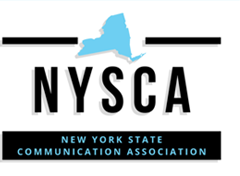Abstract
This Keynote address was delivered at the 70th annual New York State Communication Association Conference on October 12, 2012. Dr. Cooper showcases an overview of some of the highlights in the history of media ethics research and key conclaves. His “overview of overviews” will lead to an examination of the epistemology and ecology of an important overview topic in the field – media saturation. Just as Thoreau went to Walden to gain a perspective on the environment of his day, Dr. Cooper conducted a “media fast” to examine the media environment of the 1980s and has been taking his classes on such fasts and related media diets ever since, as discussed in his new book Fast Media/Media Fast. Inspired by McLuhan’s insight that one does not learn the true impact of a medium until it is subtracted from society, Dr. Cooper compares media saturated societies such as the U.S. with “no media” (e.g. the Amish) and “low media” (e.g. the Rapa Nui) zones to gain a better overview of our own media, society, and some resulting ethical issues.
Dr. Cooper is the author or co-author of six published books about media ethics and criticism including Television and Ethics: A Bibliography, Communications Ethics and Global Change, and his most recent, Fast Media/Media Fast. The co-publisher of Media Ethics, an independent academic and professional magazine, Cooper has written over a hundred articles and reviews. From 1975-1980 at the University of Toronto, Cooper served as an assistant to Marshall McLuhan. He has received numerous fellowships, awards, and grants, and was founding director of the Association for Responsible Communication, which was nominated for the Nobel Peace Prize in 1988.
Recommended Citation
Cooper, Tom
(2013)
"KEYNOTE: Fast Media/Media Fast – Tom Cooper,"
Proceedings of the New York State Communication Association: Vol. 2012, Article 2.
Available at:
https://docs.rwu.edu/nyscaproceedings/vol2012/iss1/2


